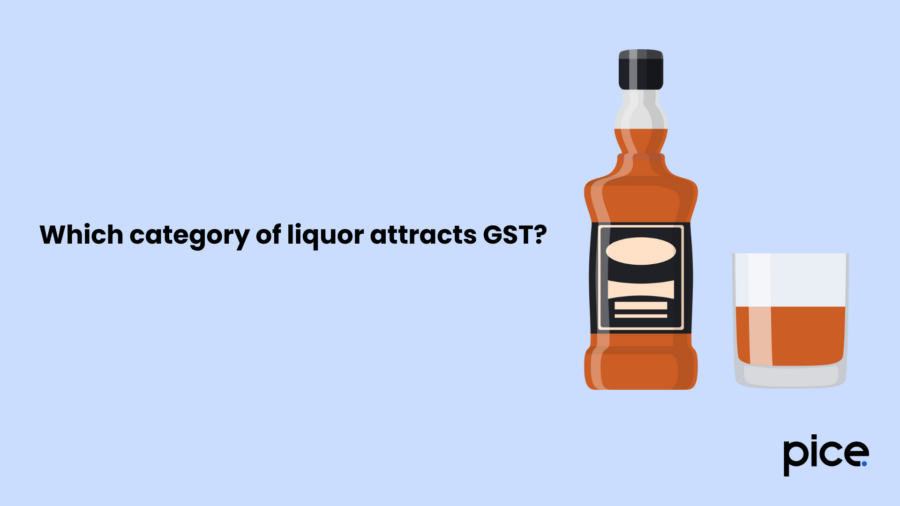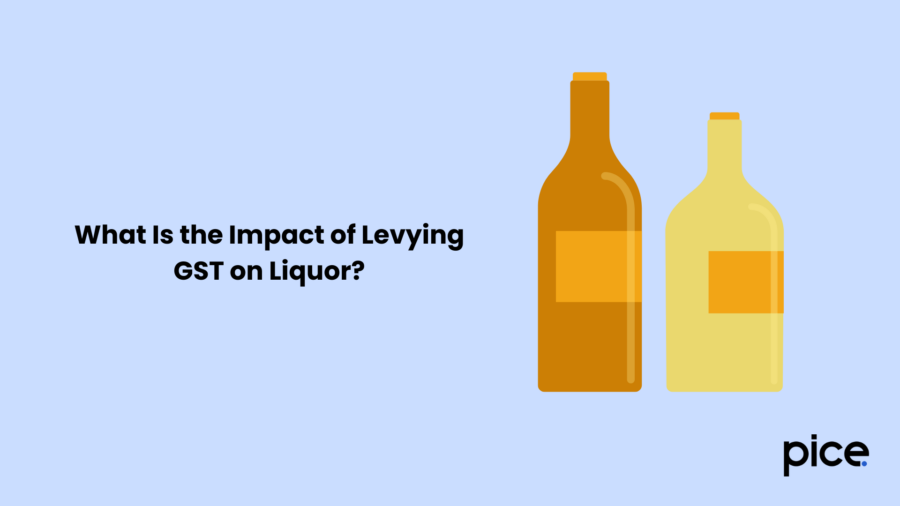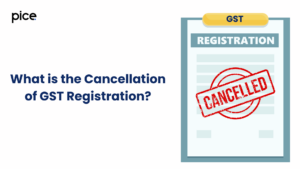Impact of GST on Alcohol Industry: Tax on Liquor in India
- 19 Jun 25
- 6 mins

Impact of GST on Alcohol Industry: Tax on Liquor in India
Key Takeaways
- Consumable alcohol remains outside the purview of GST, continuing to be governed by state-level excise duty and VAT.
- Input materials used in liquor production attract GST, increasing production costs without input tax credit benefits.
- Higher logistics and raw material taxes under GST have raised liquor prices, even though the final product is GST-exempt.
- Liquor manufacturers face reduced profitability, as increasing prices risks losing market share to cheaper alternatives.
- The GST exemption creates a fragmented taxation landscape, affecting quality, pricing, and competitiveness in the alcohol industry.
After the introduction of Goods and Service Tax (GST) in India, in 2017, the supply of all goods and services, be it interstate or intrastate, attracts GST. However, there are certain exceptions to the GST law. One major exception is consumable alcoholic liquor, which does not fall under GST.
Despite this exemption, the alcohol sector, especially the segment dealing with consumable alcohol, has felt a notable impact. In this blog, let us explore the impact of GST on alcohol industry in detail.
Which category of liquor attracts GST?

Liquor for human consumption in India is free of GST. However, the taxes prevailing before the introduction of GST in India, continue to apply to the sale of liquor. Here are the earlier taxes applicable on liquor in India:
● Excise Duty: Excise duty is levied by the government on goods manufactured within the country. In other words, domestic products, including alcoholic products, attracted this tax in India.
● Value Added Tax: VAT, an indirect tax was levied at all the stages of production and sale of alcohol, including procurement of raw materials and commercial distribution of finished product to end-users.
The table below illustrates the types of alcohol that attract GST;however, they, are not for consumption:
| Harmonised System of Nomenclature (HSN) Code | Type of Alcohol | Applicable GST Rate |
| 2207 | Denatured alcohol, hard drinks, ethyl alcohol | 18% |
| As above | Ethyl alcohol supplied to marketing companies dealing in oil, where they blend the ethyl alcohol with the motor spirits | 5% |
Reasons for No GST on Alcohol in India
Here are the key reasons why the Indian government chooses not to impose a tax on liquor meant for human consumption:
- Alcohol serves as a major source of revenue for state governments, generating approximately ₹90,000 crore annually.
- Consumable alcoholic drinks already have high prices to prevent excessive drinking by people in India.
What Is the Impact of Levying GST on Liquor?

The following are the impacts of levying tax on liquor or alcoholic beverages:
- As the state government levies tax on consumable alcohol, the Central government does not levy any tax rate. This might adversely affect the profitability of diverse liquor producers.
- The raw materials used in the production of alcohol for consumption such as barley, denatured alcohol, molasses and glass bottles are taxed at 18% and 28%. Thus, liquor producers have to bear the tax burden. However, sellers increasing the price would adversely impact the sales. Before the introduction of the GST Act, transport and freight services were taxed at 15% under service tax. After GST came into effect, this rate increased by 3%. Although VAT rates on these beverages haven’t changed significantly, the overall cost of liquor has gone up due to this revision.
- No tax on alcohol has pushed up its overall cost because of higher taxes on input materials. Since the final product is tax-exempt, manufacturers must bear input taxes and later claim a refund for the accumulated Input Tax Credit (ITC).
- There are multiple inferior-quality brands available in the market. Consumers often look for cost-effective brands of alcohol. Increasing the price of liquor would result in lower profits for alcohol producers.
- State governments in India bear the effects of decreasing profits.
- Inferior quality liquor that consumers can easily afford will likely affect their health adversely.
- Beer is excluded from the purview of GST in India. This has raised concerns among liquor manufacturers, as they believe its low alcohol content of just 5% does not justify such exclusion.
Conclusion
The impact of GST on the alcohol industry is evident from the increase in liquor prices. While consumable alcohol does not attract GST, excise duty and VAT on alcohol are still applicable. On the flip side, other types of alcohol and the raw materials used to produce consumable alcohol attract GST.
This has increased the sale price of consumable alcohol, resulting in reduced profits in the liquor industry. Thus, despite no imposition of GST, the tax liability and burden continues to persist for alcohol producers.
💡If you want to streamline your invoices and make payments via credit or debit card or UPI, consider using the PICE App. Explore the PICE App today and take your business to new heights.


















